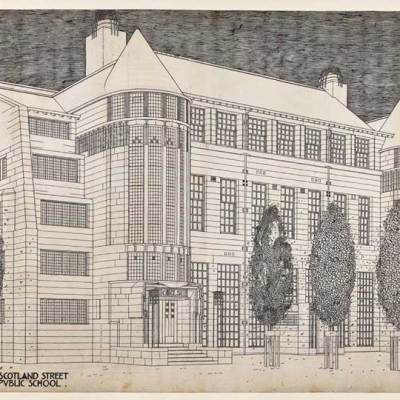Digby Warde-Aldam surveys the London art scene…
Well, I finally made it to the Barbican’s ‘Magnificent Obsessions’ (until 25 May). The exhibition contains selections from the personal collections of 14 very different artists, from Andy Warhol to Edmund de Waal. The result is unsurprisingly barmy. And terrific though it is, it has forced me to confront some awkward realities.
Obviously, nobody collects stuff in the same way, but you can broadly separate these artists into two camps; connoisseurs like Howard Hodgkin and those who hoard indiscriminately, like Warhol. The question is: which kind are you?
I fall solidly into the Warhol camp. For the past few years, art galleries have bombarded my letterbox with catalogues. And when I visit a show, I hang on to the press release for future reference. I have at times thought of creating a filing system, or even better, throwing some of it out, but it has now piled up to the level of my bedroom mantelpiece, and threatens to topple over and bury me as I sleep.
I need help. Or at the very least, some recycling sacks.
◎
But first there are more galleries to visit, and yet more of their literature to hoard. The most attractive catalogue I’ve been sent recently was from Sims Reed Gallery (until 20 March), where a spectacular show of Bridget Riley’s prints opened last week. The catalogue is printed so beautifully that Riley’s best work is almost as dizzying on its pages as it is on the gallery walls.
It’s been a terrific fortnight, which makes it annoyingly difficult to summarise. At a trot, though, the Courtauld’s ‘Goya: The Witches and Old Women Album’ (until 25 May) is just as good as everyone says it is. Similarly, Marian Goodman Gallery’s John Baldessari exhibition (until 25 April) is predictably wonderful. ‘I will not make any more boring art’, Baldessari declared in 1971. As far as I’m concerned, he’s been as good as his word.
I coveted pretty much everything at Analia Saban’s show at Sprüth Magers (until 28 March) and also Alex Katz’s trousers when I went to hear him talk about his ‘Black Paintings’ at Timothy Taylor Gallery (until 2 April). My real fantasy purchase of the fortnight, though, would have to be the stunning pair of Hector Guimard windows in the Fine Art Society’s otherwise uninspiring Art Nouveau exhibition (until 19 March).
◎
The YBAs have come in for a kicking of late. Perhaps it’s no surprise; the flashiness that characterised so much of their most famous work seems tasteless in the wrong way. Last week, Henry Moore’s daughter Mary told The Guardian that Damien Hirst and co had ‘set back art by 100 years’. ‘Art has gone back into a frame,’ she said, ‘it has gone back to being a contextual, narrative thing which is actually where we were with the Pre-Raphaelites.’
At the centre of Moore’s statement lies the idea that art must somehow be ‘progressive’. I don’t think this is very helpful, in part because it implies certain styles somehow have more worth than others, but mostly because it’s just not true. And in any case, it’s not as though the YBAs were useless artists. (Well, not all of them, anyway.)
Shapero Modern’s ‘Rack ‘em up: British Contemporary Editions, 1990–2000’ (until 27 March) is a thrilling survey of the less bombastic side of the movement’s output. This isn’t to say it’s in any way dull, though. Alongside editions like Rachel Whiteread’s spooky Doorknob and Keith Coventry’s deadpan Painting Kit, you can also watch the Chapman Brothers’ middle-fingers-aloft video Bring Me the Head of… It’s a porn film screened through a peep-hole, and it’s just as gloriously revolting as you’d hope.
◎
Paul Durand-Ruel (1910), Pierre-Auguste Renoir. Private collection. Archives Durand-Ruel © Durand-Ruel & Cie

Speaking of enfants terribles, it’s easy to forget quite how vilified the Impressionists were when their work was first presented. You need only read Émile Zola’s ultra-depressing novel The Masterpiece (1886) – supposedly inspired by his friend Manet – to get an idea of the bile the Impressionists attracted. The National Gallery’s ‘Inventing Impressionism’ (until 31 May) tells the story of dealer Paul Durand-Ruel, a lone voice who championed their work and ultimately had the last laugh.
It’s a stunning show, I’m told, and I’m not in a position to disagree. But try as I might, I just can’t get excited about it. While I’ll readily agree that Manet’s depictions of urban life in 19th-century Paris are some of the most exciting works ever painted, I find this once-shocking style neutralised by association. For me, Impressionism is intrinsically linked with tacky prints of water lilies in retirement homes and bad Renoir reproductions on laminated café menus. But who knows? Perhaps a trip to the National Gallery will change my mind…
Related Articles
Magnificent Obsessions, magnificent show (Katy Barrett)
Alex Katz: April Apollo (Matthew Sperling)
The New Deal: Paul Durand-Ruel (Caroline Rossiter)
Paul Durand-Ruel: Gambler, Discoverer or Inventor? (Peter Crack)




